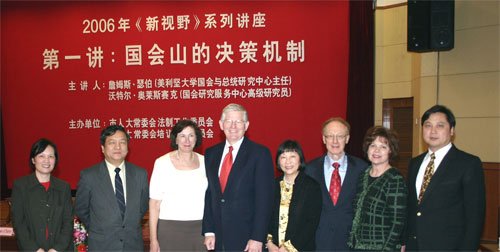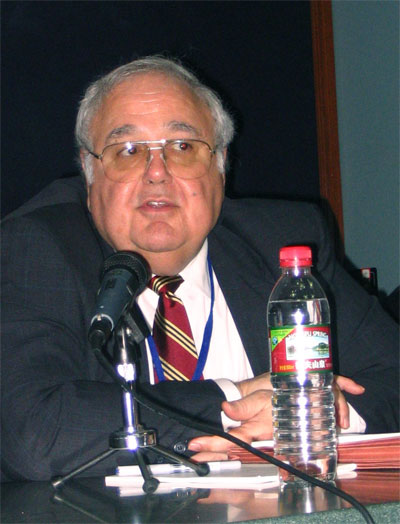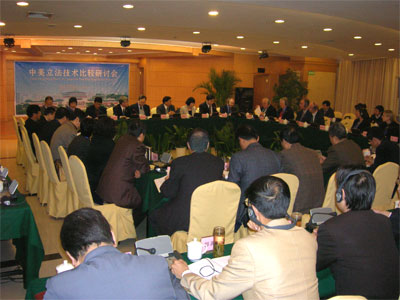Legislative Training

On March 25 and 26, 2006, the US-China Education Trust partnered with Fudan University’s Center for American Studies (CAS), the Shanghai Municipal Peoples Congress and the Peking University Center for Peoples Congress and Foreign Legislature Studies to hold an innovative training program employing a practical, hands-on approach to study the US legislative process.

Using the development of mine safety legislation in the US as a case study, the program — “Understanding the US Congress and Legislative Process: Mine Safety” — focused on conveying an understanding of not only how a bill becomes a law, but how laws are enforced and how numerous constituencies affect the process. Experts Walter J. Oleszek, Dr. James A. Thurber, Claudia H. Thurber and Thomas Mascolino lectured about Congress and about interaction between the legislative and executive branches, injecting their own experiences in working with Congress and in various Administrations.
More than 75 staff members from 27 national, provincial and municipal Peoples Congresses came to participate in the training. By staging a mock legislative hearing, the attendees gained firsthand experience regarding the constituent pressures placed on members of Congress. The complete transcript for the two-day session is available here in Chinese.
The most immediate outcome of the March 2006 session was a request from the Chongqing Peoples Congress to hold a similar training program in 2007. Once again, USCET partnered with CAS to plan the program, which was held from April 8-10, 2007. The Southwest University of Politics and Law was the fourth co-sponsor, and the Ford Foundation provided additional financial support.

“US Congressional Oversight: Mine Safety” focused more specifically on how laws are enforced and revised. The swift passage of new safety standards under The MINER Act (in the wake of the 2006 Sago Mine disaster) provided an up-to-date example of how the US Congress acted to address legal weaknesses, and the Chinese participants had many specific questions about the enforcement process, a particular concern in their own mine safety efforts.
Not only did the 60 plus attendees, who were primarily Peoples Congress representatives from China’s mining provinces, gain technical knowledge about safety issues, but they also obtained insight into the importance of transparency and constituent relations when making new laws. As was the case in the 2006 session, this was brought home most effectively through their participation in a mock oversight hearing, with the US guest speakers taking on the roles of senators and the Chinese representing various interest groups.
